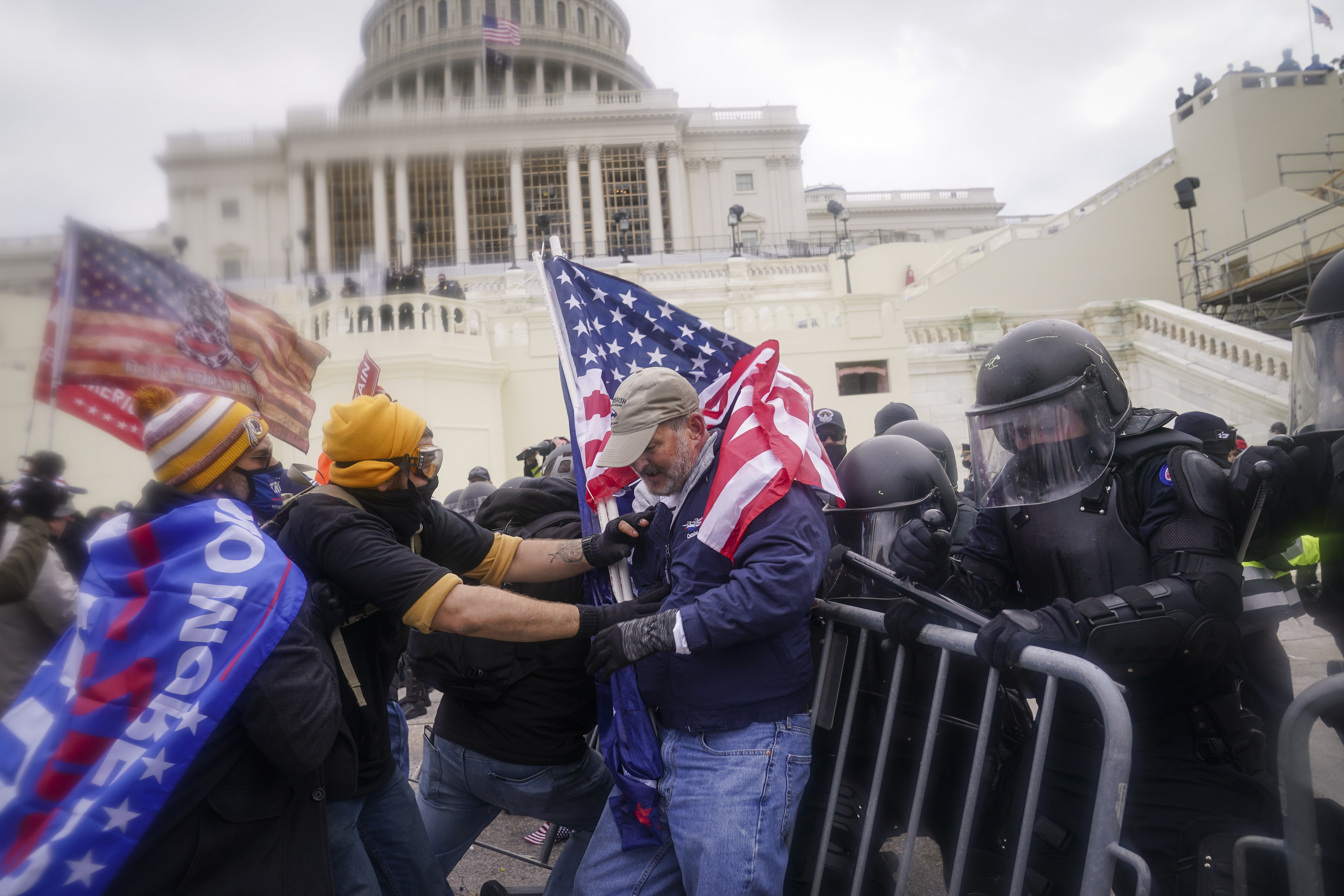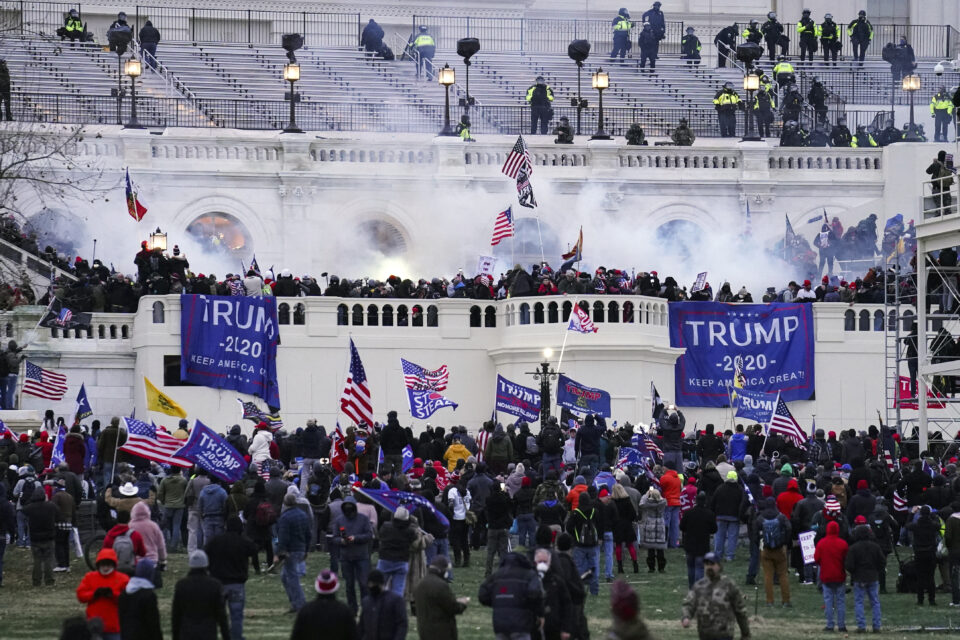Former President Donald Trump has made it clear he is looking for cover from his closest allies around the upcoming public hearings by the House select committee investigating the January 6 insurrection – and some prominent names in Congress and the Republican Party are answering the call.
Trump's team has communicated to some of his most loyal acolytes on Capitol Hill that the former president wants people vigorously defending him and pushing back on the select committee while the public hearings play out, according to GOP sources familiar with the request.
Committee members have teased that the hearings could be focused on Trump's direct role in undermining the election results. The committee has been working toward a thesis that Trump's obsession with losing the election and his peddling of false claims about the results is what laid the groundwork for the violent and deadly riot at the Capitol.
LIVE NEWS UPDATES: Interest rates set to rise again tomorrow
Trump's insistence that his allies defend his honour has mobilised Republicans both on and off the Hill into action, with a broad range of plans to protect him. This despite the belief by some Republicans that they should draw attention away from January 6 and instead continue to beat the drum of the present day economic and cultural issues that have resonated with voters.
In Congress, the targeted response to the hearings will be overseen by House Minority Leader Kevin McCarthy of California, who has been coordinating the response effort with GOP members.
READ MORE: Russia hits Kyiv with missiles as Putin warns West on arms

The California Republican is facing added pressure to show his support for Trump after he was caught on tape earlier this year criticising the former President and some of his GOP colleagues in the immediate aftermath of the Capitol attack.
The main player in keeping Republicans on message will be House GOP Conference Chair Elise Stefanik of New York, who emerged as one of Trump's loudest defenders during his first impeachment and replaced Wyoming Rep. Liz Cheney in Republican leadership. Sources say Stefanik will be tasked with coordinating the party's messaging response and ensuring key allies and surrogates have talking points.

"Just like impeachment, at the urging of President Trump and his team, Stefanik is going to play an outsized role defending President Trump and House Republicans on the issue of election integrity," said a senior GOP source.
Two members whom House Speaker Nancy Pelosi rejected from serving on the select committee will also play a key part on the messaging front: Rep. Jim Banks of Indiana, who chairs the conservative Republican Study Committee; and Rep. Jim Jordan of Ohio, who had a hand in the effort to overturn the 2020 election results.
"We're going to push back," Banks told CNN. "There were serious failures that occurred on January 6 that have got to be fixed. This sham committee hasn't done anything to address them."
Banks and other Republicans, including Rep. Rodney Davis of Illinois, the top Republican on the House Administration Committee, have also been working on their own counter investigation into January 6 that focuses squarely on the security failures from that day. Banks said they are putting the "finishing touches" on a report outlining their findings and expect it to be released in "a matter of weeks," which could coincide with the tail end of the select committee hearings.
Part of the challenge for Republicans — especially after they decided to boycott the select committee — is that they have little insight into what the investigation has uncovered and what might be revealed in the public hearings, making it harder for them to settle on a precise strategy.
Another is the prospect that the committee will lean heavily on testimony from former aides of Vice President Mike Pence to help make their case – a scenario that could force Republicans to choose sides in a more public way than they have done so previously.
Trump allies and some Republican operatives are already expecting testimony from Pence's former aides to be featured prominently in the hearings – only adding to the already simmering animosity between the two camps.
While the Republican House Conference has its plans, there is a more specific challenge for the five members who have been subpoenaed by the committee as part of their investigation. McCarthy, Jordan, Rep. Scott Perry of Pennsylvania, Rep. Mo Brooks of Alabama and Rep. Andy Biggs of Arizona have all resisted attempts by the committee to sit for depositions and provide documents as part of their investigation.
All five run the risk that the committee has information about their role in the attempts to undermine the election results or the riot itself that could be revealed during the hearing.

Jordan and other lawmakers have attempted to pre-but that risk, by attempting to define the committee and its work as nothing more than a partisan political witch hunt. Jordan has outlined this argument during calls with conservative donors organised by Republican fundraising groups, including CPAC.
But those politicians and Republicans more broadly, are weighing whether they stand to benefit from a fulsome response – especially considering they were given the chance to testify behind closed doors and have all refused to date.
From outside of the Hill, the Republican National Committee and Matt Schlapp, the chairman of Conservative Political Action Conference, are expected to be major players in the GOP's counter-attack, sources said. It's unclear, however, if Trump himself will make an appearance or publicly weigh in as the hearings are unfolding.
While the party's plans are still being fleshed out, the Republican pushback is likely to take the form of news conferences, op-eds, cable news appearances and social media posts, sources familiar with the discussions said. There's also been talk of a "war room" to better enable the GOP to unleash rapid, real-time responses to the hearings.
Trump is scheduled to meet next week with many of the players where his personal strategy and demands could become clearer. He will host a fundraiser for Stefanik on Monday and then the next day, huddle with members of the hardline House Freedom Caucus, which is home to some of his staunchest allies.
Push back or change the subject
But while the Republicans are willing to do Trump's bidding, there is real anxiety that pushing back too much will take focus away from the areas they believe will help them the most in the autumn elections.
"We just need to reinforce the narrative that the Democrats are obsessed with Trump and the past and they aren't interested in dealing with the problems of the present," said a senior Republican operative working on Senate races across the country. "It's Biden, it's inflation, it's the border, it's gas prices. Most Americans aren't talking about January 6th."

Instead, some operatives are offering their clients talking points to prepare them for the inevitable questions that will arise around the hearing, but with the goal of steering the conversation back to domestic issues.
"We need to deal with things as they come up, but the goal is to stay on message," the operative said. "If we do our job right, we will show that we are focused the issues that most Americans are dealing with every single day."
That feeling is echoed by rank-and-file Republican members eager to reclaim the majority.
"Most Americans don't like what happened on January 6, but rate it pretty low on their importance list when compared to inflation, cost of gas, the border and crime," Rep. Don Bacon, a Nebraska Republican who represents a Biden-won district, told CNN. "Once Pelosi kicked off two members on GOP side, which prior to this Congress has never been done in the history of the House, the perceived legitimacy of the Select Committee by our side is zero."
Others within the party, including lawmakers and operatives, have suggested that the best course of action may be to do nothing because they believe most Republican voters are paying very little attention to the upcoming hearings and the presentations are considered unlikely to change the public opinion among the GOP base.
"A lot of people feel we should not even push back," a source said, adding the thinking is to just let the committee keep doing what it is doing because it is actually hurting members politically and having a very limited impact on Republicans.
"There may be no competing, no formal push back in any way and no organisational cost because our power base isn't watching," they added.
But as with anything in Republican politics, the best laid plans could easily be blown up by Trump who may insist that his supporters demonstrate their support vocally and without reservation.


